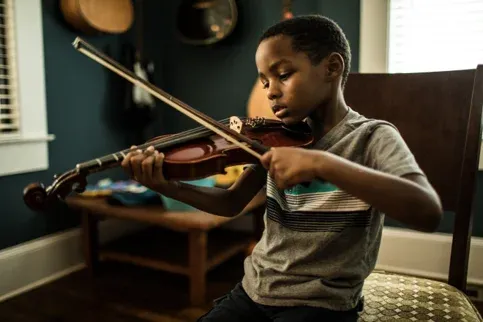Should music be made a core subject in secondary school? (WASSCE Article)
The Ministry of Education is organizing an essay competition on the topic: “Music should be made a core subject in secondary school.” Write your entry. (WAEC WASSCE 2001)
The below is a model response to the above WAEC past question:
We are all familiar with the music of icons like Michael Jackson, Bob Marley, Amakye Dede, and Lionel Richie, who rocked the world. They entertained audiences all around the world with music that had a message, was humorous, and was insightful. They were able to make a lot of money while making an enormous difference by selling millions of CDs throughout the world. Anyone, from a homeless person begging on the side of the road to the President of the United States, might enjoy their music. There will always be some who speak of them in awe and reverence as legendary figures. We need more of these types of people. The use of musical notes to convey emotion is an art form. Music is an integral component of our society and should not be ignored. Music plays a huge role in all our daily lives. In the Bible, when a demon tormented King Saul, he had David, one of the best musicians of all time, play the harp for him until he was cured. It's safe to say that no matter where you're from or what you believe, you may find common ground in your shared appreciation of music.
As a student, I believe that music should be a required subject at our school for several reasons. The Bible's parable of the talents emphasises the need to identify one's strengths and put them to effective use for one's own advancement and the benefit of others. By incorporating music lessons into the school day, kids will develop their God-given abilities as they learn to play instruments like the trumpet, piano, drums, and so on. Imagine a world without Michael Jackson's music or Amakye Dede's lyrics; the proverb says, "maximum height of achievement is always attained via genius." The argument elaborates on the significance of talent and makes the case for music education as a mandatory component of the K-12 curriculum so that all kids can study music, broaden their horizons, and pursue their highest potential.
When all kids have the opportunity to explore music, it might serve as an additional career option. Students with a keen eye for detail may decide to pursue music as a career. Famous musicians like Jay-Z and Beyoncé have benefited greatly from their musical careers, both financially and socially. If you want to be "filthy rich" and renowned, music is the way to go; in Ghana, even first-graders are familiar with Sarkodie. A country's trajectory may be reversed when its citizens utilise music as a stage to mock its societal ills. The democratic health of a nation can be helped by its musicians, who can use their art to counsel their fellow citizens and denounce corrupt officials. In their music, reggae artists like Bob Marley, Lucky Dube, Culture, and Peter Tosh often address important societal topics.
Finally, students have music as an option for relaxation and diversion. The old saying goes something like, "all work and no play makes Jack a dull lad," and so music will provide a way for students to relax and unwind from their demanding schedules. Students can benefit much from the wisdom and moral values that can be instilled in them via music study. One can only dread what the holiday season would be like if Ghana did not produce such talented artists. Much of the country's leisure time is spent listening to music. There are more people who attend live music events like concerts and nightclubs to listen to and enjoy music than watch Premier League games.
I am aware that many students have a deep appreciation for music, and I believe that by including it as a required course, students will get a deeper understanding of the field. Rastafarians believe that music is one of the primary ways God communicates with his people and, as such, it is a sacred possession. To achieve this goal, it might be helpful to make it accessible to everyone.
There is no downside to making music a required subject in schools, and the benefits far outweigh any concerns that could be raised about including it.


.webp)







No comments: